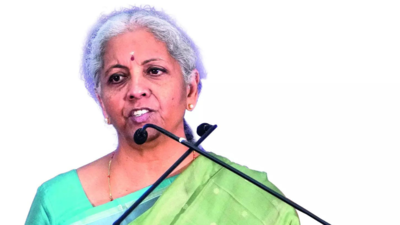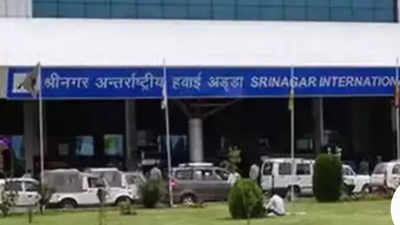Calling the landmark GST overhaul a “people’s reform”, finance minister Nirmala Sitharaman said the sweeping rationalisation of tax rates across nearly 400 products will benefit every family, lower household bills, and boost consumption, giving a fresh push to the economy.In an interview to PTI, Sitharaman emphasised that she would personally monitor whether the benefits of the cuts are passed on to consumers through price reductions, while pointing out that industry has already shown positive intent. “This is a reform which touches the lives of all 140 crore people. There is no individual in this country who is untouched by GST. The poorest of the poor also have something small that they buy, touched by GST,” she said.She noted that in the days since the decision, carmakers, PSU insurers, shoe brands and apparel companies have already announced significant price cuts, with others expected to follow suit by the time the new rates kick in on September 22, the first day of Navratri.The rejig eliminates the 12% and 28% slabs, leaving a simplified structure of 5% for common-use goods and 18% for others, with a new 40% slab reserved only for sin and ultra-luxury items. Essential goods like soaps, shampoos, tractors, cars, air-conditioners and even individual health and life insurance premiums will become cheaper, with the latter now fully exempt from GST.Under the revamped structure, most daily food and grocery items will fall under the 5% slab, with staples like bread, milk and paneer attracting no tax at all. “So this rate reduction is going to bring down monthly household ration and medical bills, as well as help aspirational buying like upgrading from car, replacing white goods like refrigerator or washing machine,” Sitharaman explained.The minister said the reform—the most significant since the 2017 rollout of GST—was designed with the common man in mind. Combined with the income tax relief she announced in February’s Budget, the measures leave more money in people’s hands and create conditions for higher consumption. “People do understand for example, Rs 100 with which they go to the shop to buy a thing. Today, the same Rs 100 they can buy one and a half of the commodity. Earlier, they bought one,” she said.Sitharaman stressed that she would directly engage with companies if they fail to pass on the benefit of rate cuts. “They’ve all come out openly to say we will pass this on. So, I can see the positivity from industry and trade… I’m very confident they will pass it on,” she said.On inflation, she added that it was “already well under control” and the tax cut would encourage people to spend more. “There is no doubt about it,” she asserted.The reforms, she said, go beyond rate reductions, targeting ease of business for small and medium enterprises as well. Key features include simplified compliance, faster refunds and smoother registration. Under the new system, 90% of refunds will be processed within the stipulated time, and companies will be able to register within three days.The overhaul also resolves long-standing disputes over product classification. For instance, all types of salted popcorn will now be taxed at 5%, irrespective of whether they are sold loose or pre-packed. Earlier, packaged salted popcorn attracted 12% GST while caramel popcorn was taxed at 18%. Similarly, cream buns will now attract 5% GST instead of 18%, addressing earlier anomalies where buns and cream were taxed separately at lower rates.“The GST overhaul touches every household, reduces confusion, and supports businesses, while ensuring affordability across the board,” Sitharaman said, adding that it will create a “virtuous cycle” of higher consumption and growth.










